
ICAS Bulletin (online ISSN 2836-3418, print ISSN 2836-340X) is published every other week throughout the year at 1919 M St NW, Suite 310, Washington, DC 20036.
The online version of ICAS Bulletin can be found at chinaus-icas.org/bulletins/.
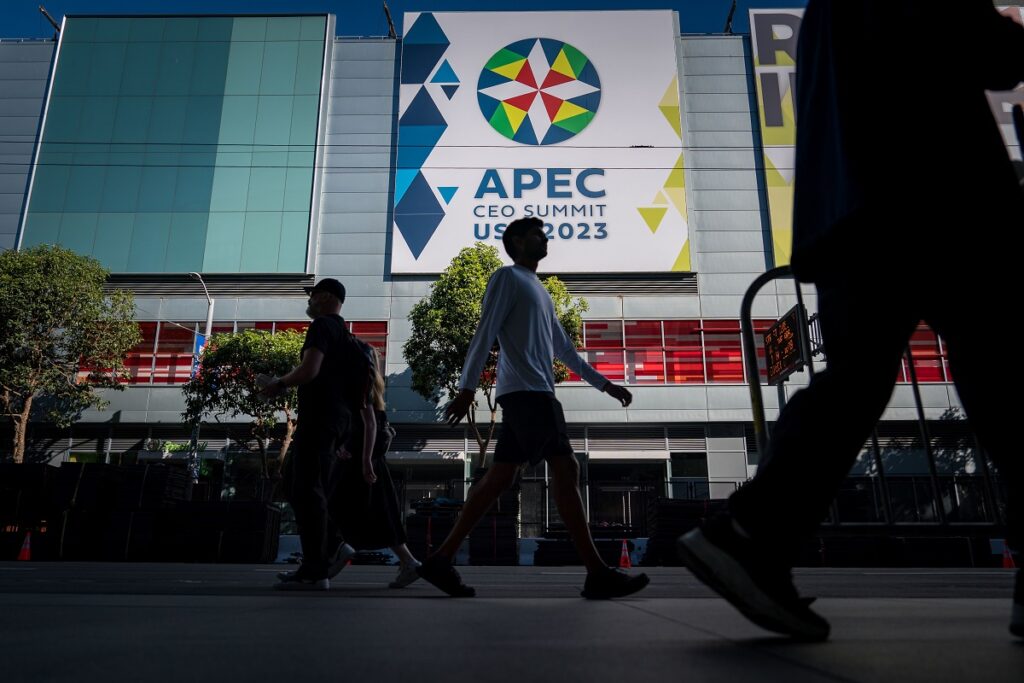
– In an interview with NPR, U.S. Commerce Secretary Gina Raimondo explained the number one priority “is to protect the American people…so if China plays by the rules, trade could be a good thing.”
– A Chinese Foreign Ministry spokesman said “the U.S. should stick to the right perception and work with China to deliver on the common understandings,” in response to Secretary Raimondo’s remarks that “China is not our friend.”
– On November 30, the current Chinese defense ministry spokesperson, Senior Colonel Wu Qian, said the U.S. and China will resume “high-level military-to-military communication…and conduct telephone conversations between theater commanders” which were discussed at the summit between President Biden and President Xi.
– Bipartisan U.S. leaders of the Congressional-Executive Commission on China condemned attacks against anti-China protestors at the recent APEC summit.
– U.S. Chief of Naval Operations, Admiral Lisa Franchetti, said on November 24 that she welcomes the announcement of improved communications with the Chinese military.
Associated News References:
“The U.S. supports China’s growth if it ‘plays by the rules,’ commerce secretary says,” NPR, December 5
“China Rips US for Seeing It as ‘Enemy’ After Raimondo Remarks,” Bloomberg, December 4 [Paywall]
“China confirms it is working with US to restore military communication channels based on Xi-Biden agreement,” South China Morning Post, November 30 [Paywall]
“Congress members, activists decry assaults against anti-China protesters during San Francisco summit,” AP, November 29
“US Navy ‘excited’ by prospect of better communication with China, but says more work needed,” Reuters, November 23
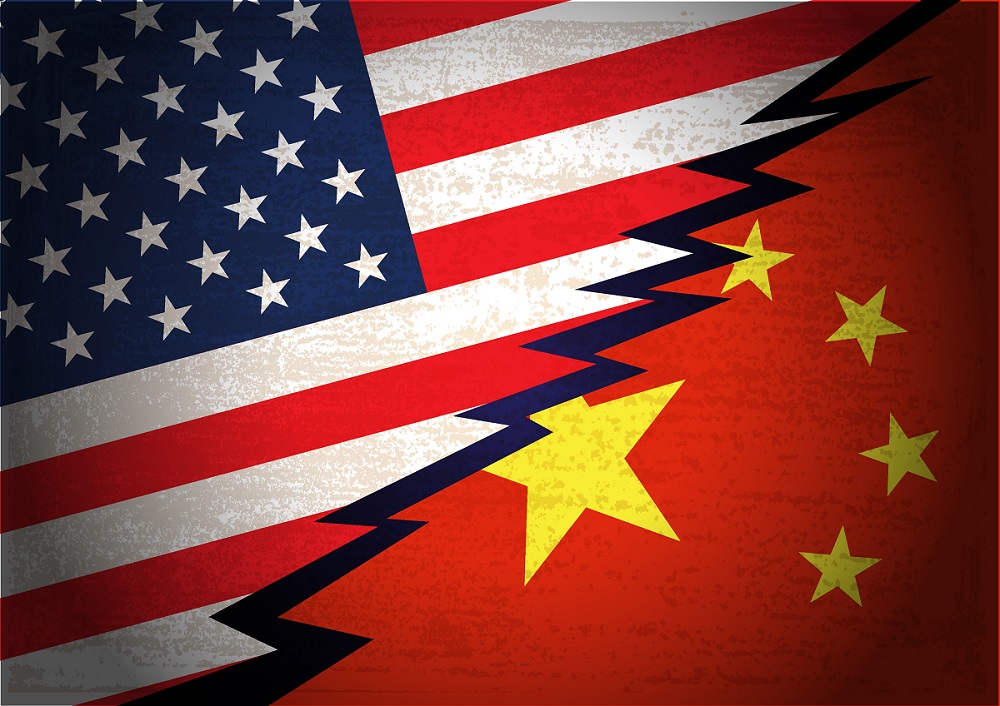
– The U.S. government has defined China as a “foreign entity of concern (FEOC),” thus blocking Chinese entities from receiving subsidies available to others for investing in EV technologies in the U.S.
– Goldman Sachs reported Chinese stocks were among the most sold in November, as fund managers sought to reduce exposure to the Chinese market.
– Data from Reuters indicates that Walmart’s imports from China dropped by 20% between January and August of this year, while the retailer increased its imports from India during the same time period.
– On November 27, U.S. President Joe Biden announced new actions “to strengthen supply chains critical to America’s economic and national security” at the inaugural meeting of his supply-chain resilience council.
– The Industrial & Commercial Bank of China (ICBC) was hit with a cyberattack in early November. As a result, it was forced to leave the Treasury market and since then has had to clear trades manually.
– A Tennessee smelter is seeking to expand its capacity to process germanium and gallium, two important materials in semiconductor production. China, the primary exporter of these minerals, has recently restricted exports to the United States.
Associated News References:
“US looks to shut China out of its battery supply chain,” Reuters, December 5
“Global hedge funds further offloaded Chinese stocks in Nov,” Reuters, December 4
“Walmart shifts to India from China for cheaper imports,” Reuters, November 29
“US and China pitch rival supply-chain visions in latest clash over global trade and economic needs,” South China Morning Post, November 28 [Paywall]
“ICBC’s Entree Onto Wall Street Looked Like a Bargain—Until Hackers Crippled Its U.S. Unit,” The Wall Street Journal, November 26 [Paywall]
“Tennessee Zinc Smelter Is at the Center of U.S.-China Trade Fight,” The Wall Street Journal, November 24 [Paywall]
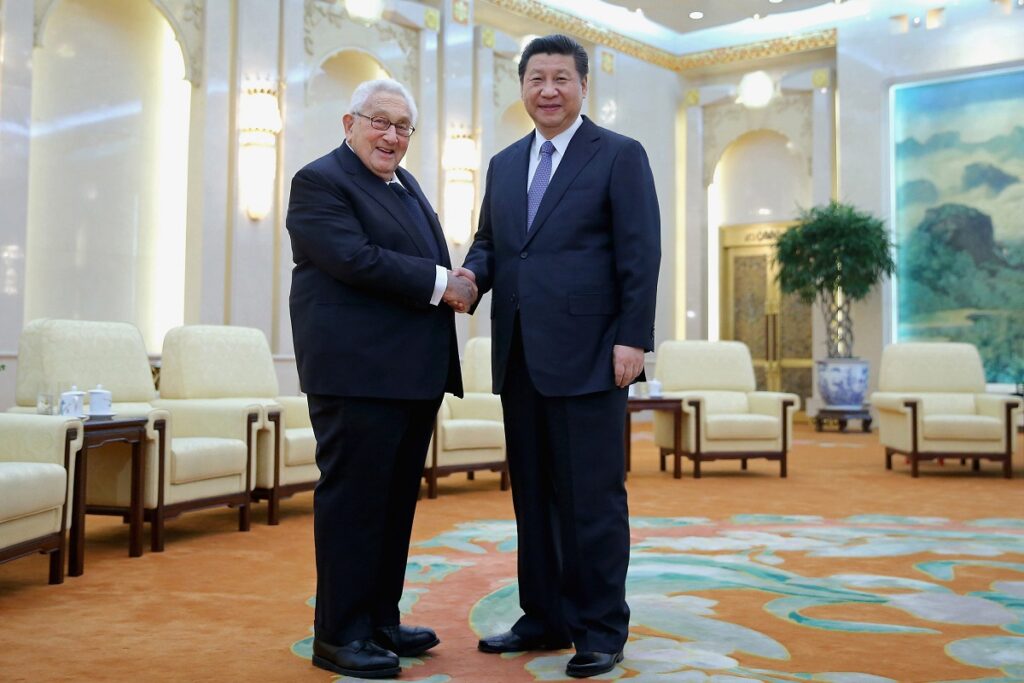
– After rating agency Moody changed China’s outlook to negative, multiple Chinese state–owned banks began to buy the yuan in currency markets in order to prevent it from further depreciating.
– China sent messages of condolences to the U.S. on the death of Dr. Henry Kissinger, who passed away on November 29. “Dr. Kissinger was a good old friend of the Chinese people,” ministry spokesperson Wang Wenbin said at a press briefing.
– Walt Disney Co. will open a new Zootopia land at its Shanghai Disneyland resort on December 20, in a bid to tap into surging demand in China.
– Chinese e–commerce platform Temu will run ads at the Super Bowl for the second year in a row, representing a massive investment in the United States.
– There is a growing number of Chinese migrants entering the U.S. through its southern border, with reportedly thousands of Chinese citizens apprehended in the past year by U.S. Customs and Border Patrol.
Associated News References:
“China’s state banks seen supporting yuan as Moody’s cuts outlook – sources,” Reuters, December 5
“China’s Xi sends condolences to Biden over Kissinger’s death,” Reuters, November 30
“Disney Launches World’s First ‘Zootopia’ Themed Land in China,” Bloomberg, November 29 [Paywall]
“Chinese E-Commerce Giant Temu Will Return to the Super Bowl,” The Wall Street Journal, November 28 [Paywall]
“Growing Numbers of Chinese Migrants Are Crossing the Southern Border,” The New York Times, November 24 [Paywall]

– A draft of the first National Defense Industrial Strategy by the Pentagon indicates that the U.S.’ defense industry struggles in the speed of its weapons productions, making staying ahead of China in the arms race difficult.
– The Pentagon is planning on developing a “Replicator” program that will create low–cost drones; a program that will also help decrease U.S. manufacturing dependency on China for related products.
– On November 30, Meta announced that it had removed almost 5,000 Chinese Facebook accounts that were impersonating U.S. citizens debating politics. This campaign was part of a Chinese five–network group targeting foreign audiences.
– Google reported that it has observed a “massive increase” in Chinese cyberattacks on Taiwan over the last six months, also noting that these hackers are employing methods that make tracking them difficult.
– The Planetary Science Journal recently published a study suggesting that a Chinese rocket carrying an unknown payload was what crashed onto the moon’s surface and made headlines in 2022.
Associated News References:
“Pentagon: US arms industry struggling to keep up with China,” Politico, December 2
“Pentagon plans a drone army to counter China’s market dominance,” The Washington Post, December 1 [Paywall]
“Meta says it broke up Chinese influence operation looking to exploit U.S. political divisions,” NBC News, November 30
“Google Warns China Is Ramping Up Cyberattacks Against Taiwan,” Bloomberg, November 29 [Paywall]
“Chinese rocket carrying ‘undisclosed’ object crashed into the moon and left twin craters, study claims,” Live Science, November 22

– U.S. Special Presidential Envoy for Climate John Kerry announced at the COP28 Summit that the U.S. would collaborate with other countries to develop nuclear fusion as an energy source to combat climate change.
– Days before the start of the COP28 summit, John Kerry said that the U.S. and China “have decided to actually work together to get a successful COP.”
– On November 30, the Biden administration proposed regulations to keep Chinese batteries out of cars sold in the U.S. by lessening subsidies for such vehicles.
– BMW and Mercedes-Benz are working together to open a network of at least 1,000 EV charging stations in China by 2026.
– According to the 2023 version of the “Leading 200 Science Cities” list, Chinese cities are producing more high-quality scientific research than U.S. and European cities.
Associated News References:
“US unveils global strategy to commercialize fusion as source of clean energy during COP28,” AP, December 5
“New US rules on Chinese batteries could push up price of electric cars,” CNN Business, December 4
“BMW, Mercedes to Set Up Joint EV Charging Network in China,” Bloomberg, November 30 [Paywall]
“U.S., China to work together at COP28 summit, Kerry says,” Reuters, November 29
“Chinese cities soar in science ranking while US and European rivals drop,” South China Morning Post, November 24 [Paywall]
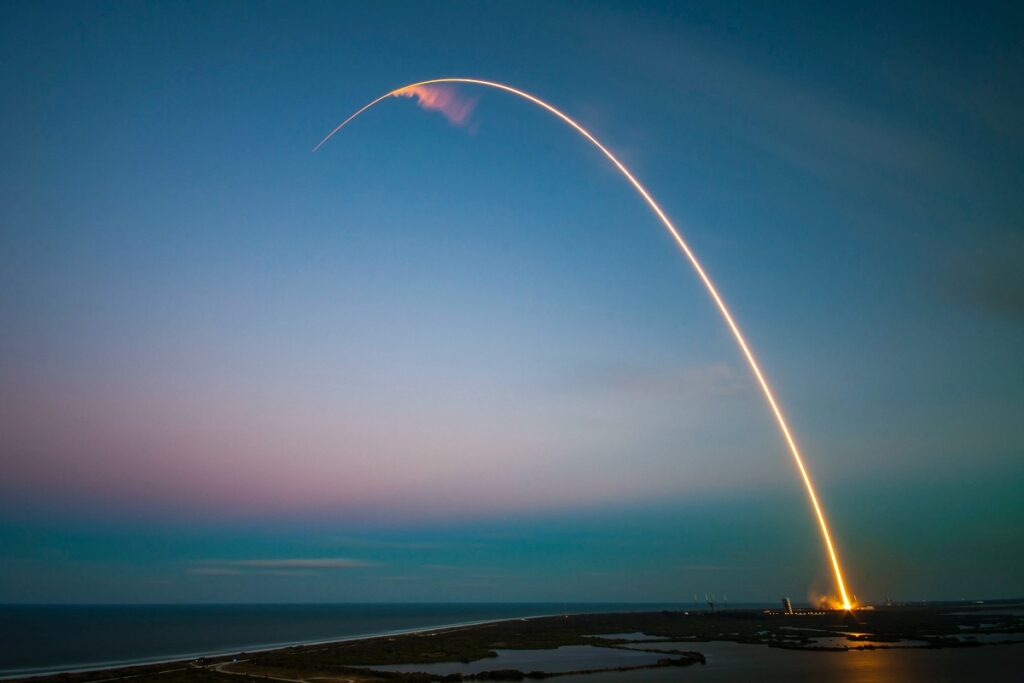
“China says U.S. warship ‘illegally’ entered waters in the South China Sea,” CNBC, December 4
“U.S. Moves to Crack Down on Money Behind Fentanyl Trade,” The New York Times, December 4 [Paywall]
“Citing Cultural Appropriation, San Francisco Tightens Rules on Candidates’ Chinese Names,” The San Francisco Standard, December 4
“World carbon dioxide emissions increase again, driven by China, India and aviation,” AP, December 4
“US, UK and Australia move to track ‘emerging threats’ in space,” Financial Times, December 1 [Paywall]
“Five senators ask Biden to impose China travel ban after respiratory illness cases,” Reuters, December 1
“Mintz staff stuck in China detention despite warming ties with US,” Financial Times, November 22 [Paywall]
“A Rare Appearance for ‘Six Persimmons,’ a 13th-Century Masterpiece,” The New York Times, November 21 [Paywall]
The ICAS team is looking to recruit two new interns for Spring 2024!
Both positions are a part-time, 20-hour per week internship that will begin in January 2024 and primarily be conducted in-person at the ICAS office in Washington, DC.
Learn about specific qualifications and expectations for the positions at the links below:
Competitive candidates will have an interest in U.S.-China relations and may be pursuing a master’s degree from an accredited institution. We are looking for team-oriented problem solvers who can think on their feet and anticipate tasks ahead of time.
This is an excellent opportunity for young or upcoming professionals interested in U.S.-China relations. For interns who work in-person, we offer a small stipend at the successful conclusion of the internship to cover daily travel costs and selected candidates will also have access to our scholars and network. We offer all ICAS research interns the opportunity to co-author with our scholars and encourage staff-guided solo publication. We also offer our interns the opportunity to publish their own research and opinions in the form of commentaries and blog posts.
Interested applicants should submit a cover letter, resume, and a 2-5 page writing sample as a single PDF. Questions about and applications for the internship can be submitted to Research Associate & Communications Officer Jessica Martin at jessicamartin@chinaus-icas.org.
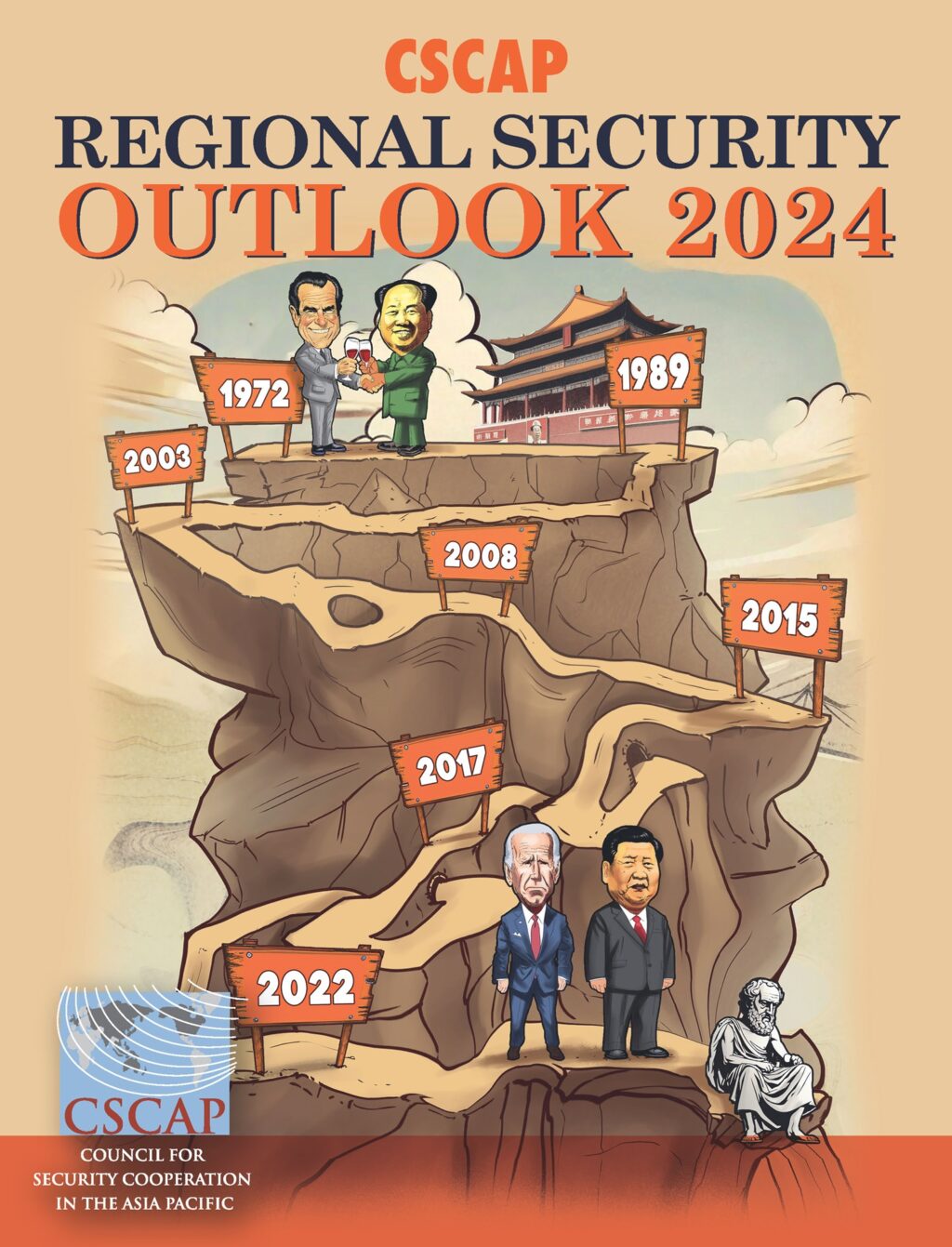
By Sourabh Gupta
November 29, 2023
At first sight, 2023 was a breakout year of sorts for Indian diplomacy…
…In this combustive test of wills, the political space to maintain an “autonomy of judgment” on major power relations has evaporated in New Delhi, and a key pillar of its multi-aligned policy – the now-mismanaged China relationship – that was intended to facilitate an upward spiral of improving relations and widen the room for strategic maneuver has crumbled. Strategic autonomy has effectively given way to strategic alignment with the U.S. and the West in the Indo-Pacific region – an outcome not entirely of New Delhi’s choosing.
With India and the United States now entering election season, the outlook for New Delhi’s foreign policy in 2024 is likely to resemble more of the same.
This journal article was originally released in the CSCAP Regional Security Outlook 2024 (page 18-21).
Hosted by Centre for International Governance Innovation
Monday, December 4, 2023
9:00 am – 11:30 am EST
On December 4, 2023, Senior Fellow and Head of the Trade ‘n Technology Program Sourabh Gupta participated in the Centre for International Governance Innovation’s (CIGI’s) second annual private workshop on digital governance in China.
On Friday, December 1, 2023, Senior Fellow Sourabh Gupta discussed Dr. Henry Kissinger’s contributions to U.S.-China relations on CGTN’s The Point with Liu Xin.
On Wednesday, November 29, 2023, Distinguished Fellow Denis Simon was quoted in Nature on China’s high-quality research footprint.
On Saturday, November 25, 2023, Senior Fellow Sourabh Gupta discussed the United States’ and the U.S. Republican Party’s views on China on RT’s Direct Impact.

The Institute for China-America Studies is an independent nonprofit, nonpartisan research organization dedicated to strengthening the understanding of U.S.-China relations through expert analysis and practical policy solutions.
1919 M St. NW Suite 310,
Washington, DC 20036
icas@chinaus-icas.org
(202) 968-0595
© 2025 INSTITUTE FOR CHINA-AMERICA STUDIES. ALL RIGHTS RESERVED.